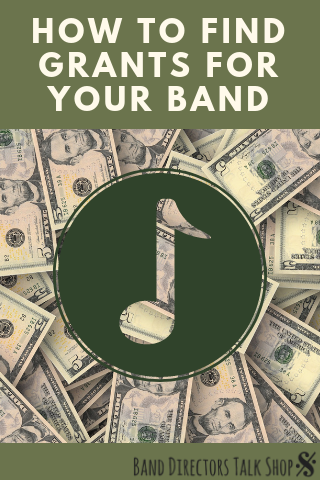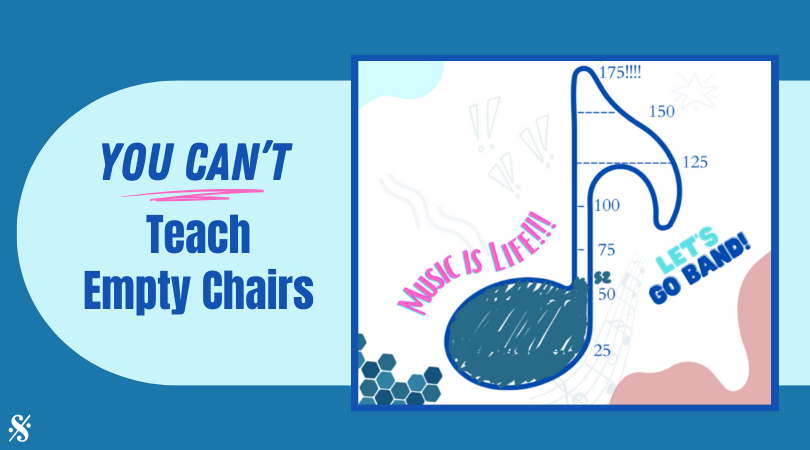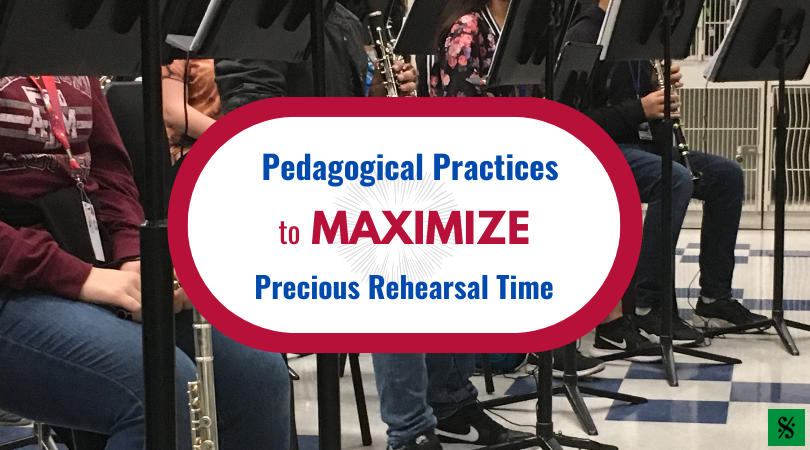
Getting funding for special projects doesn’t have to require long-term fundraising efforts or hosting a fundraising event. Here are some ideas for places you can look for easy funding for whatever you might need:
Businesses connected to your program
Whether it’s someone related to a student, or a former student, or someone who is just a big fan of the school and/or what you’re doing with the music program, hitting up these businesses for grant money can be easy. You just have to have something specific you’re fundraising for to make the ask a little more personal and urgent. You don’t even have to start by asking the person. You can look on the business website and see if they already have a corporate giving program. And don’t forget all the businesses that you spend money with: your local music stores, restaurant chains you take kids to after festival, and those that have kids as their primary ‘target audience’.
When you should use them: When you’re just starting out. They are a lot more likely to give because they know you. Once they do give, then you can use that money in your other grant requests [since most of the time when you ask for money you’ll get some form of the question ‘what else are you doing to fund this?’ or ‘who else is giving you money?’].
Local branches of national chains
These will mostly be banks or insurance companies. The “big thing” in corporate giving right now is local mini-grants. Many big companies have stopped giving large grants, or even corporate sponsorships, because they want to look truly benevolent [“We aren’t doing this for marketing, we’re doing it because we care.”]. Mini grants are perfect for your program.
When you should use them: When what you need money for affects your whole program, whole school, or whole community. Not a sectional teacher, or scholarships for individual students. Think bigger. Maybe a concert series. Or a district-wide music professional development training.
Local chapters of national community funding organizations
Examples include your local Lion’s Club, Rotary, or Junior Service League. They will typically have a short grant application for you to fill out so they know where the funding is going. They will only take these applications once a year, but they tend to have a lot more money to work with, and a lot more discretion in which projects they fund.
When you should use them: They’re more likely to fund something that is close-ended, like a new band trailer, or a handful of instruments, or a staff member to help with beginning band for a year.
Local giving groups
These are starting to pop up all over and you can truly capitalize on them. It’s typically a group of affluent people who all meet up once a quarter with $100 each. At the meeting they are presented with a list of organizations they can give to [usually it’s someone in the club who submits a group]. Once all have been presented, they vote, and the organization with the most votes gets all the checks. Seriously.
When you should use them: when you can create a need that feels dire and will affect your entire community. They vote purely based on emotion, so you need to have an emotional cause. You’ll have to do some asking around to find them since they don’t really have advertising or an online presence, but maybe shoot it out as a query in your next mass email and see what happens.
And finally,
Your school district foundation
Many school districts now have a partner nonprofit that only funds projects within the district, and many have money for individual classroom or teacher grants. These organizations may even be just waiting for you to tell them what you need, and if your need is great enough, they may make it their mission to fundraise specifically for you. These are usually community members volunteering their time because they care…and that is very powerful.
When you should use them: as much as you can, as often as you can. They’re like the PTA for the whole district. [We’re assuming you’ve already asked your PTA for support, right?]
Whether you need a handful of new trumpets, a year-supply of reeds, or a horn teacher to come work with those 6 new horn players for a few hours a week, you can have your needs met by grants. Now go get some.
Elisa Jones specializes in helping music educators build, grow, and manage thriving school music programs. With an MBA alongside her degree in music, she is also a coach and consultant to small businesses and nonprofits around the country. With a background in band, orchestra, and general music, she has been teaching for nearly 20 years and currently holds the prestigious position of elementary music teacher at a private K-8 Catholic School in Grand Junction, Colorado. She has been invited to be a presenter at the 2017 NAfME Conference in November. Follow her blog at ProfessionalMusicEducator.com where you can learn much more about finding funding for your program as well as watch video tutorials on how to start.
Related Reading:
Percussion Room Makeover
6 Books to for Band Directors to Read
The Band Registry Fundraiser: Easy Fundraising Without Selling Anything
The 100 Gig Challenge: Extraordinary Engagement Through Service Learning
If you would like to receive our weekly newsletter, sign up here.
Don’t forget to like us on Facebook too!
Learn. Share. Inspire.
BandDirectorsTalkShop.com






Leave a Reply
You must be logged in to post a comment.